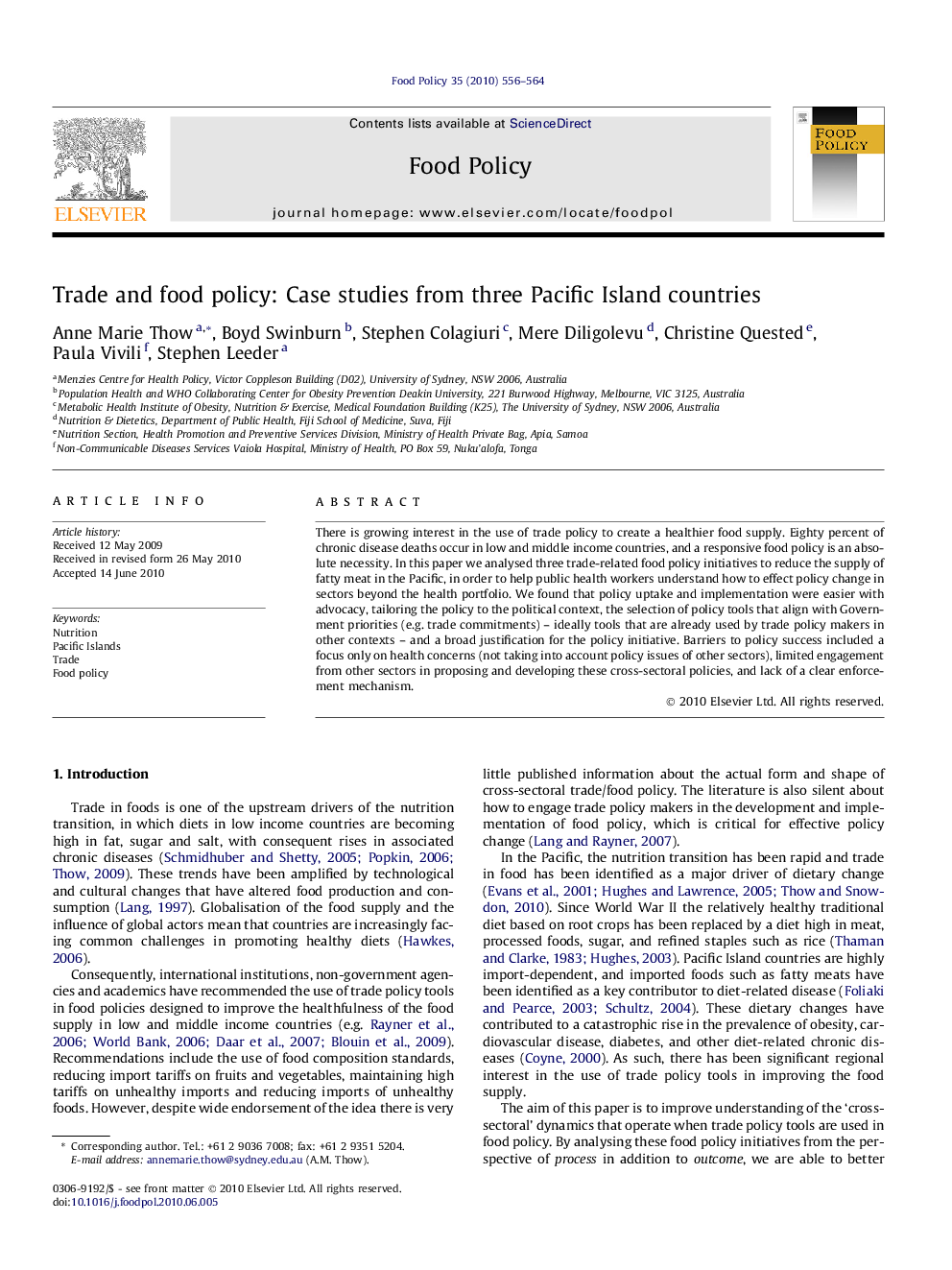| Article ID | Journal | Published Year | Pages | File Type |
|---|---|---|---|---|
| 5070913 | Food Policy | 2010 | 9 Pages |
Abstract
There is growing interest in the use of trade policy to create a healthier food supply. Eighty percent of chronic disease deaths occur in low and middle income countries, and a responsive food policy is an absolute necessity. In this paper we analysed three trade-related food policy initiatives to reduce the supply of fatty meat in the Pacific, in order to help public health workers understand how to effect policy change in sectors beyond the health portfolio. We found that policy uptake and implementation were easier with advocacy, tailoring the policy to the political context, the selection of policy tools that align with Government priorities (e.g. trade commitments) - ideally tools that are already used by trade policy makers in other contexts - and a broad justification for the policy initiative. Barriers to policy success included a focus only on health concerns (not taking into account policy issues of other sectors), limited engagement from other sectors in proposing and developing these cross-sectoral policies, and lack of a clear enforcement mechanism.
Related Topics
Life Sciences
Agricultural and Biological Sciences
Food Science
Authors
Anne Marie Thow, Boyd Swinburn, Stephen Colagiuri, Mere Diligolevu, Christine Quested, Paula Vivili, Stephen Leeder,
